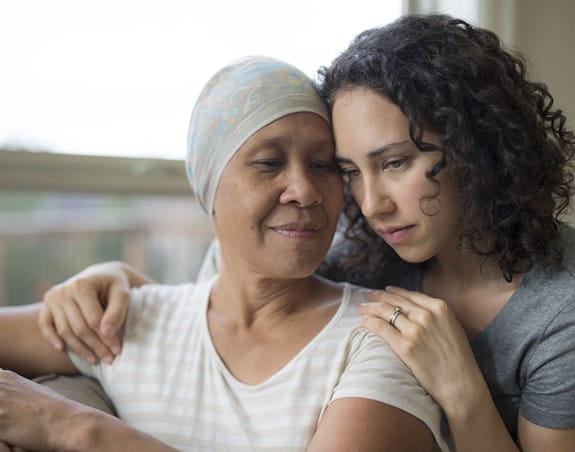Is my cancer risk higher if many people around me have it?
The claim

The truth
Living or working near people who get cancer doesn’t mean you have a greater risk for cancer.
When there is a greater-than-expected number of cancer cases within a group of people in the same area over a period of time, it can be called a “cancer cluster.”
Cancer clusters usually involve:
- one type of cancer
- a rare type of cancer
- a type of cancer developing in a group of people that don’t normally get that cancer (e.g. children or young adults develop a cancer that usually develops in adults)
5 things you should know about cancer clusters
- As a general term for a group of over 200 related but different diseases, cancer is more common than most people think. This means many Canadians will develop some form of cancer in their lifetime.
- Cancer sometimes occurs more often in certain families. Several family members may be diagnosed with cancer because they share the same genes that are associated with an increased risk. They may also have similar risk factors for cancer, such as an unhealthy diet, obesity, or alcohol use.
- There may be cancer clusters among unrelated people when they’re exposed to a common source of a cancer-causing substance, such as tobacco smoke.
- A cancer cluster may be due to chance alone. The causes of cancer clusters are rarely found.
- People are living longer than ever before – and cancer is more likely to occur as people get older. This greater life expectancy may make it seem like cancer is becoming much more common, but the increase in the number of cancer cases is likely related to the growing number of elderly people in the population.
The Canadian Cancer Society is committed to sharing important information about cancer risk to Canadians and will continue to monitor research in this area.
Learn more about cancer statistics.
Your trusted source for accurate cancer information
With support from readers like you, we can continue to provide the highest quality cancer information for over 100 types of cancer.
We’re here to ensure easy access to accurate cancer information for you and the millions of people who visit this website every year. But we can’t do it alone.
Every donation helps fund reliable cancer information, compassionate support services and the most promising research. Please give today because every contribution counts. Thank you.
